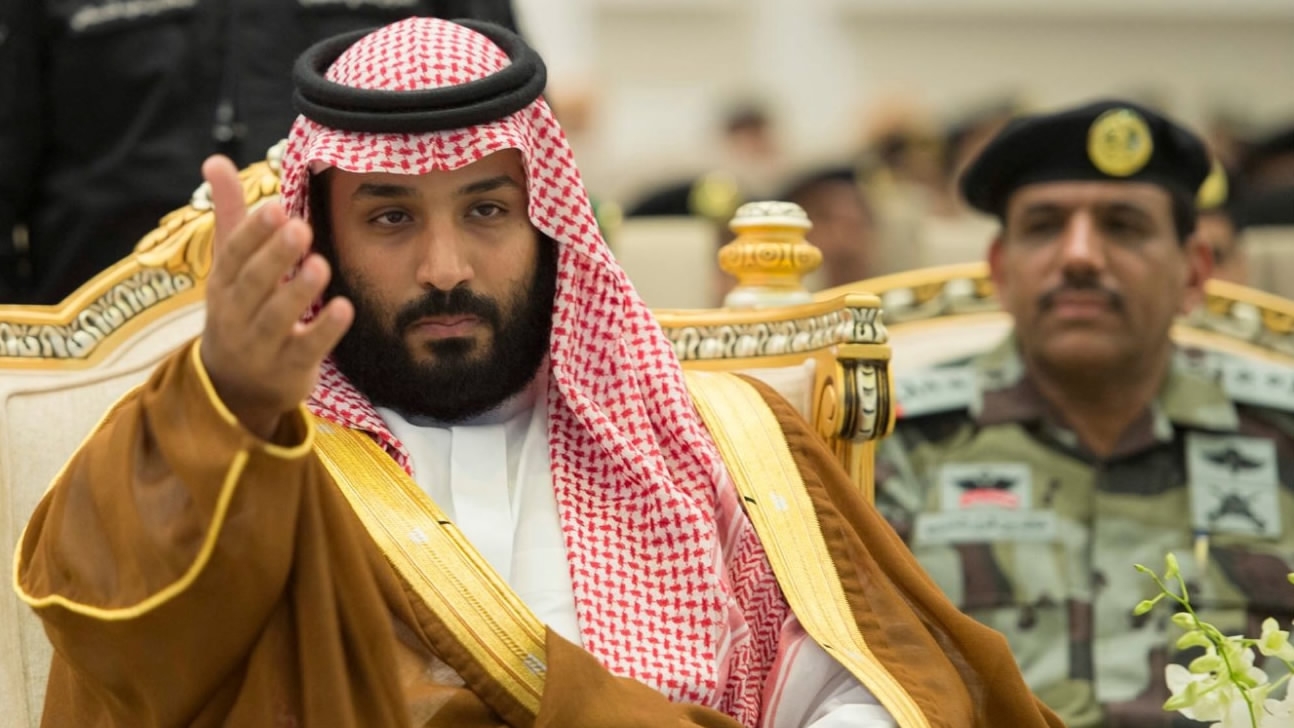A spate of arrests in Saudi Arabia this month of over 30 people – including prominent clerics and rights activists – perceived to be opponents and critics of Crown Prince Mohammed bin Salman, has prompted speculation that the ground is being cleared for the powerful prince’s ascension to the throne, sooner than expected.
“Last week, about 30 people were reportedly rounded up by authorities, ahead of the crown prince’s ascension to the throne,” Saudi journalist and author Jamal Khashoggi wrote in his opinion piece in The Washington Post.
Meanwhile, The Washington Times, quoting an unnamed former high-level US official in the region, reported that speculation is rampant among Western officials that the 32-year-old crown prince could be made king within weeks.
De facto ruler
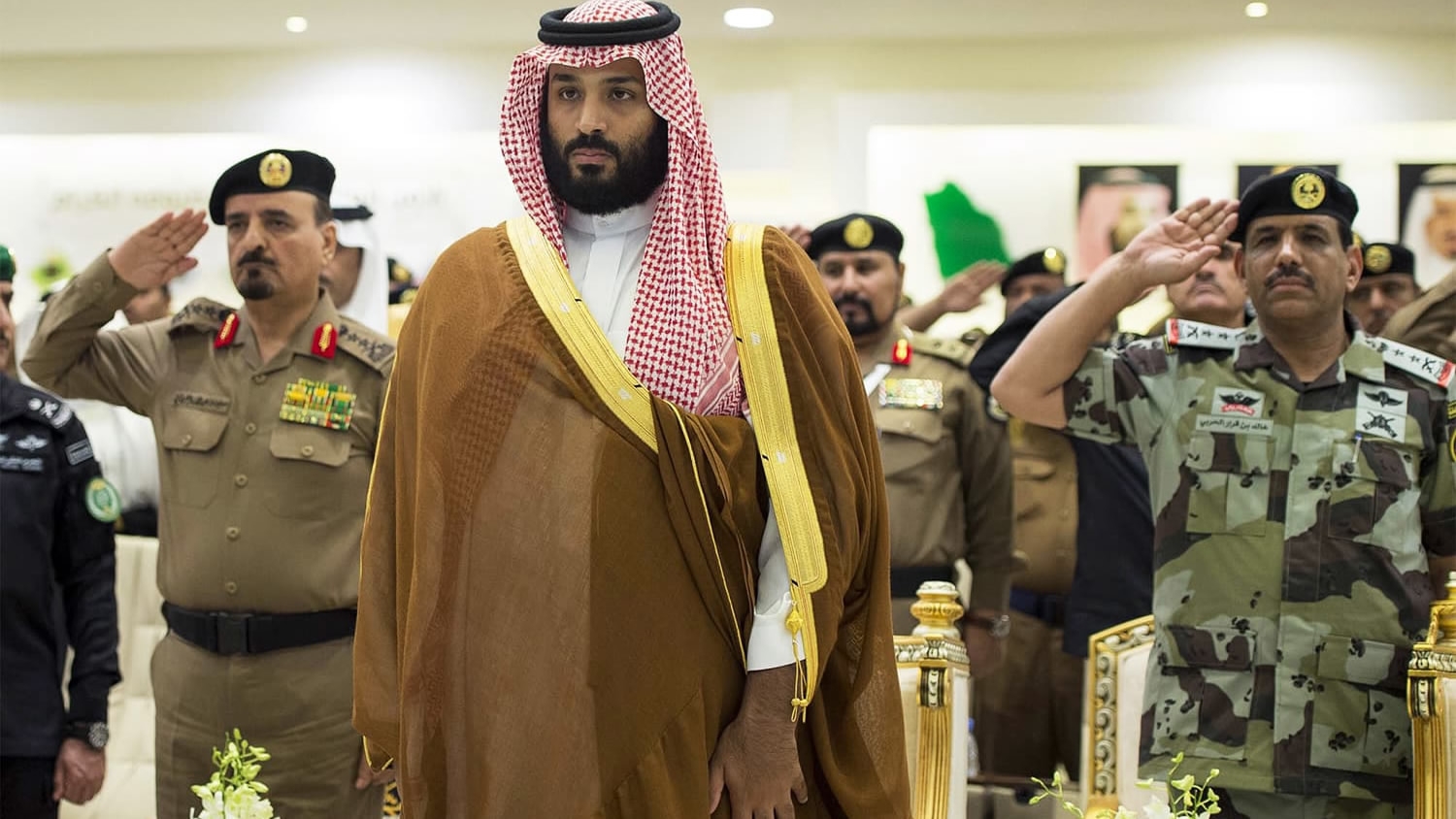
A handout picture provided by the Saudi Royal Palace on August 23, 2017, shows Saudi's Crown Prince Mohammed bin Salman attending a military parade by Saudi security forces in preparation for the annual Hajj pilgrimage in the holy city of Mecca. /AFP Photo
A handout picture provided by the Saudi Royal Palace on August 23, 2017, shows Saudi's Crown Prince Mohammed bin Salman attending a military parade by Saudi security forces in preparation for the annual Hajj pilgrimage in the holy city of Mecca. /AFP Photo
Ever since Mohammed edged out his cousin to become the heir to the throne this June, political observers surmised that the 81-year-old King Salman bin Abdulaziz Al Saud may be preparing to abdicate to his favorite son.
The 32-year-old crown prince, often known as MBS, is already viewed as the de facto ruler thoroughly in charge of defense, economy and other key agencies of the government.
"I can't say when the formal ascension of Mohammed bin Salman might happen, but the real transfer of power has already happened – he is effectively ruling Saudi Arabia," Perry Cammack, a fellow at the Carnegie Endowment for International Peace, was quoted as saying in an AFP report.
The latest purge is being seen by many as eliminating any signs of internal dissent before the much-anticipated formal transfer of power. Some see the crackdown on Mohammed’s perceived opponents as an indication that the crown prince’s authority is being boosted deliberately to pave the way for a speedy ascendancy.
'Wary of the old guard'
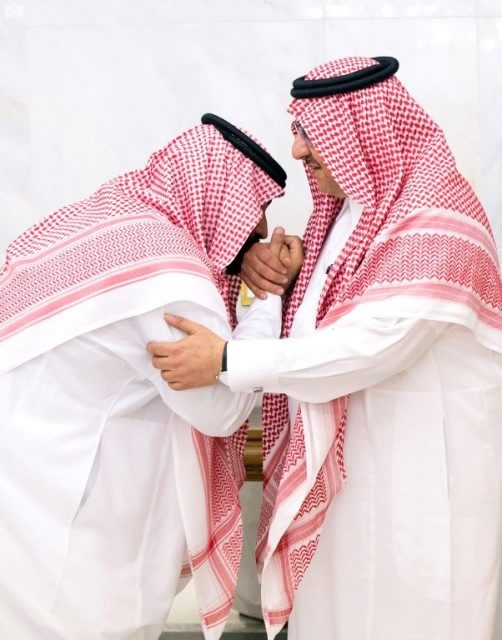
A handout photo made available by the Saudi Press Agency (SPA) on June 21, 2017, shows Saudi Arabia's former Crown Prince and Interior Minister Mohammed bin Nayef (R) pledging his allegiance to his successor, newly appointed Crown Prince Mohammed bin Salman, at the Royal Palace in Mecca. /AFP Photo
A handout photo made available by the Saudi Press Agency (SPA) on June 21, 2017, shows Saudi Arabia's former Crown Prince and Interior Minister Mohammed bin Nayef (R) pledging his allegiance to his successor, newly appointed Crown Prince Mohammed bin Salman, at the Royal Palace in Mecca. /AFP Photo
Mohammed’s prodigious rise has almost appeared mythical. The prince was named deputy crown prince and handed most of the keys to the kingdom when his aged father ascended the throne in 2015.
This June, Mohammed ousted his 58-year-old cousin, Prince Mohammed bin Nayef, to become the king-in-waiting. At the time, Saudi television channels showed the bearded crown prince kissing the hand of the older prince and bowing to him in a show of reverence.
Media reports later said that the deposed prince had been placed under house arrest, while other senior princes have been prevented from traveling, claims strongly denied by Saudi authorities.
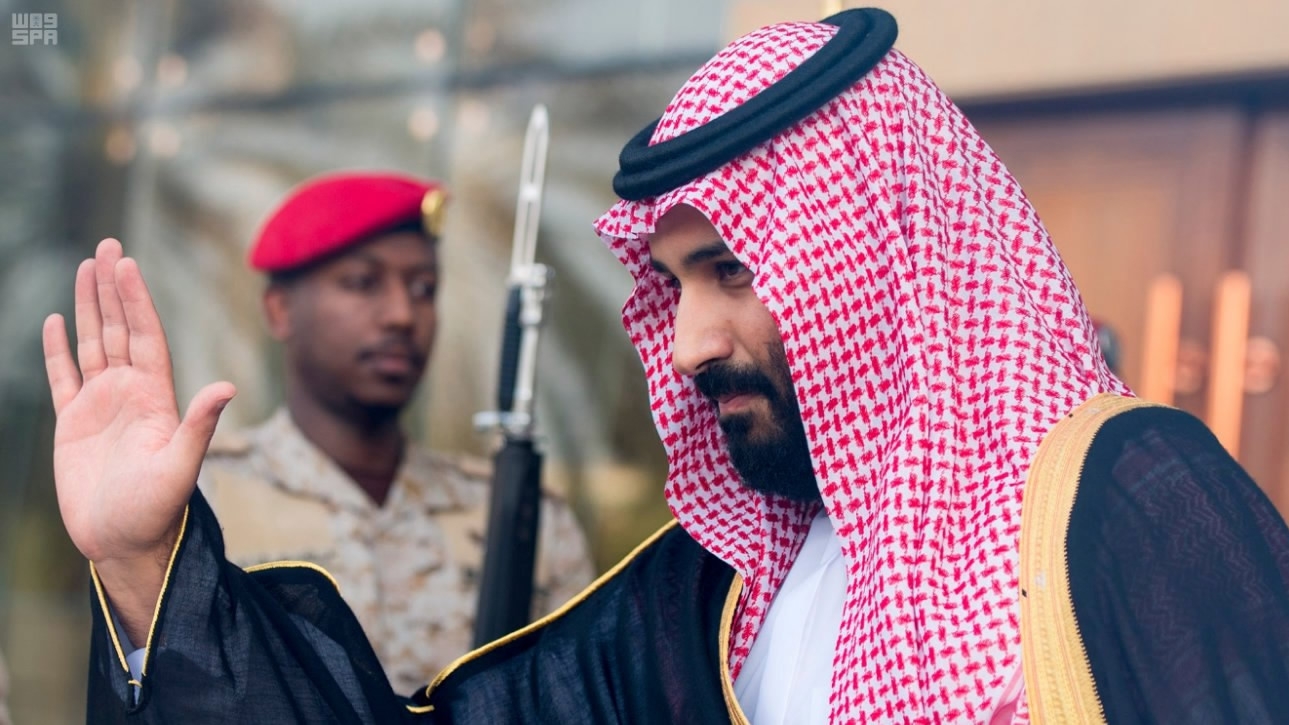
This handout photo made available by the Saudi Press Agency (SPA) shows Saudi Crown Prince Mohammed bin Salman waving during a welcoming ceremony for British Defence Secretary Michael Fallon in Jeddah, Saudi Arabia, September 19, 2017. /Reuters Photo
This handout photo made available by the Saudi Press Agency (SPA) shows Saudi Crown Prince Mohammed bin Salman waving during a welcoming ceremony for British Defence Secretary Michael Fallon in Jeddah, Saudi Arabia, September 19, 2017. /Reuters Photo
Analysts say many of those detained this month are opposed to Mohammed's belligerent foreign policy that includes the blockade of Gulf neighbor Qatar as well as some of his daring reforms, including privatizing state assets and cutting subsidies.
Saudi officials have instead suggested a foreign plot to overthrow the government, without disclosing details.
Meanwhile, The Guardian attributed senior figures inside Saudi Arabia saying that the crackdown is aimed at sidelining influential clerics who the royal court believes have been muted in their support for the stance against Qatar.
“This [crackdown] needs to be viewed through the prism of Qatar primarily,” a senior figure told The Guardian. “But it’s also about eliminating any other potential rival power bases on the home front for an eventual ascendancy to the top job. He remains wary of anyone connected to Mohammed bin Nayef, or the old guard.”
Poised for a 50-year reign?
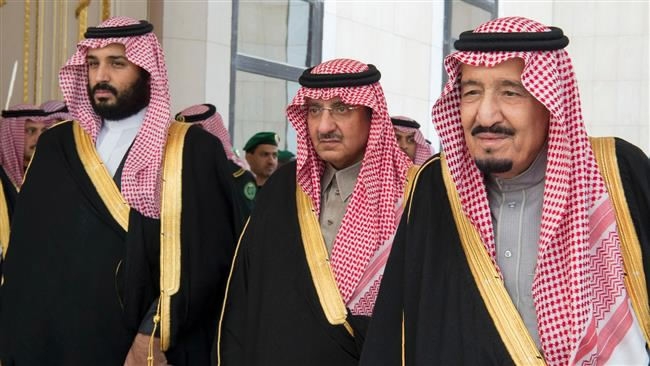
Saudi King Salman bin Abdulaziz (R), former crown prince Mohammed bin Nayef (C) and Crown Prince Mohammed bin Salman in Riyadh. /AFP Photo
Saudi King Salman bin Abdulaziz (R), former crown prince Mohammed bin Nayef (C) and Crown Prince Mohammed bin Salman in Riyadh. /AFP Photo
If all works well for the crown prince, Mohammed will not only become the youngest monarch of Saudi Arabia but he is also poised to reign the longest in its history.
Mohammed’s grandfather King Abdulaziz, the founder of the desert kingdom, was crowned the first monarch of Saudi Arabia in September 1932 at an age of 45. He remains the youngest to ascend to the Saudi throne so far. King Abdulaziz ruled for 21 years.
King Abdulaziz’s son and an uncle of Mohammed, King Fahd has had the longest rule in Saudi Arabia – 23 years, from June 1982 to August 2005
Political observers predict Mohammed could well be in control of the oil-rich kingdom for at least half a century.
"With the [older] generation having now left the scene and his main younger rivals having been removed, Mohammed is primed to enjoy a dominance over Saudi Arabia unseen since the rule of Abdulaziz, who founded the modern Saudi kingdom in the 1930s," said Cammack in an AFP report.
The present monarch, King Salman, took the reins of the kingdom in January 2015 at the age of 79, while his predecessor King Abdullah was crowned in 2005 when he was 80. Abdullah ruled for nearly a decade.
A youth icon
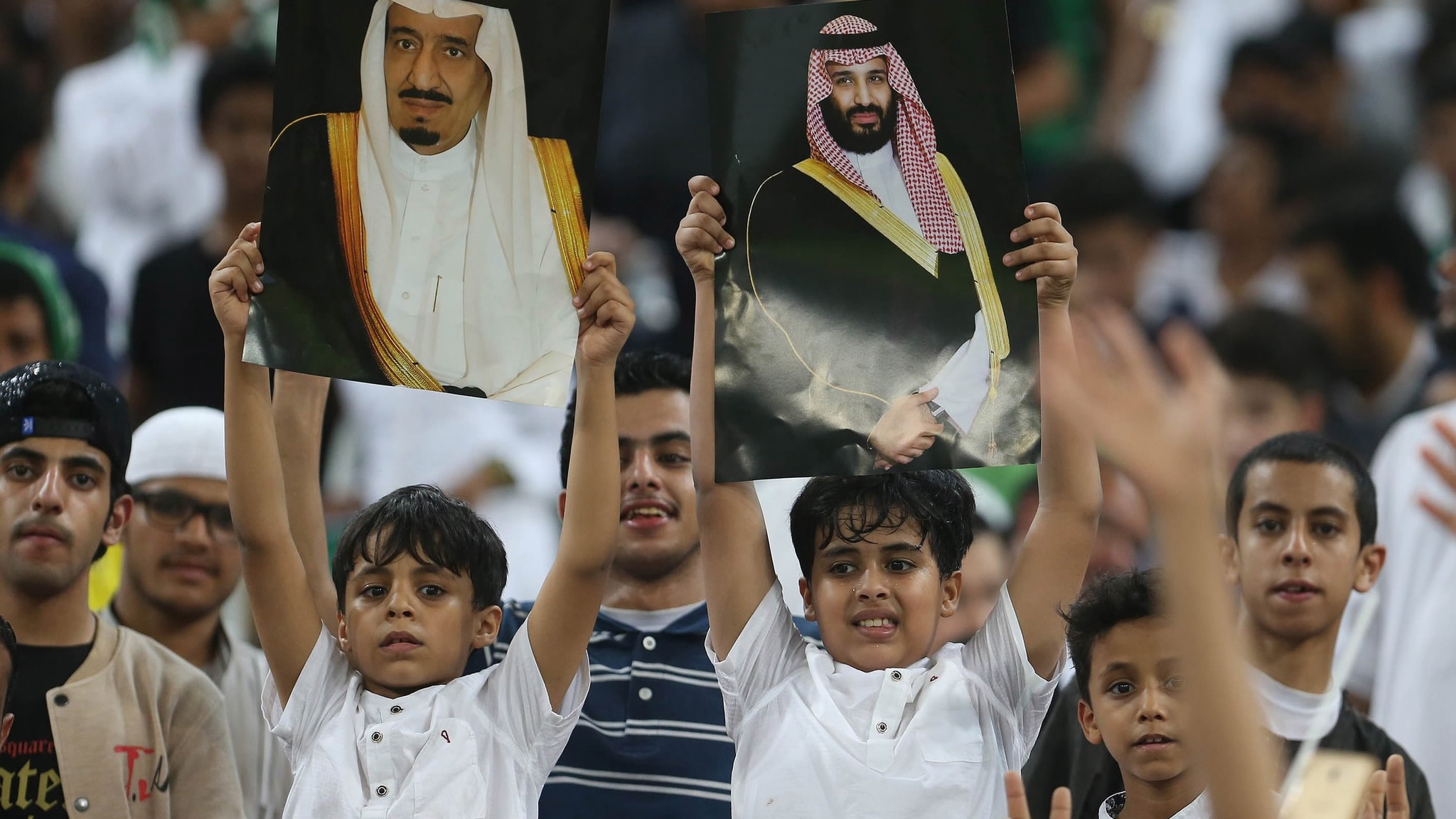
Saudi boys hold up portraits of Saudi King Salman and Crown Prince Mohammed bin Salman during the FIFA World Cup 2018 qualification football match between Saudi Arabia and Japan at King Abdullah bin Abdulaziz Stadium in Jeddah on September 5, 2017. /AFP Photo
Saudi boys hold up portraits of Saudi King Salman and Crown Prince Mohammed bin Salman during the FIFA World Cup 2018 qualification football match between Saudi Arabia and Japan at King Abdullah bin Abdulaziz Stadium in Jeddah on September 5, 2017. /AFP Photo
With age on his side in a country accustomed to aging rulers, Mohammed seems keen on luring the young Saudis by pushing for sports and entertainment in his reform agenda, dubbed Vision 2030, at the risk of peeving conservatives.
Mohammed appeared this month in the football match that saw Saudi Arabia qualify for next year's World Cup. The smiling prince flashing a victory sign on the occasion is now the image stamped on government’s new promotional poster for Vision 2030.
On the other hand, Mohammed is also believed to be the man behind the recent aggressive Saudi stand against Qatar, Iran, Syria, and Yemen.
"His own youth, his tendency to centralize power, and his rapid changes to foreign policy have all alienated some of the senior ruling family members, while his changes to the economy have upset some of the merchant families," Jane Kinninmont, from the London-based Chatham House, said in an AFP report.
"Building up a youth support base may help MBS compensate for alienating some of the supporters that Saudi princes have traditionally counted on," she added.

